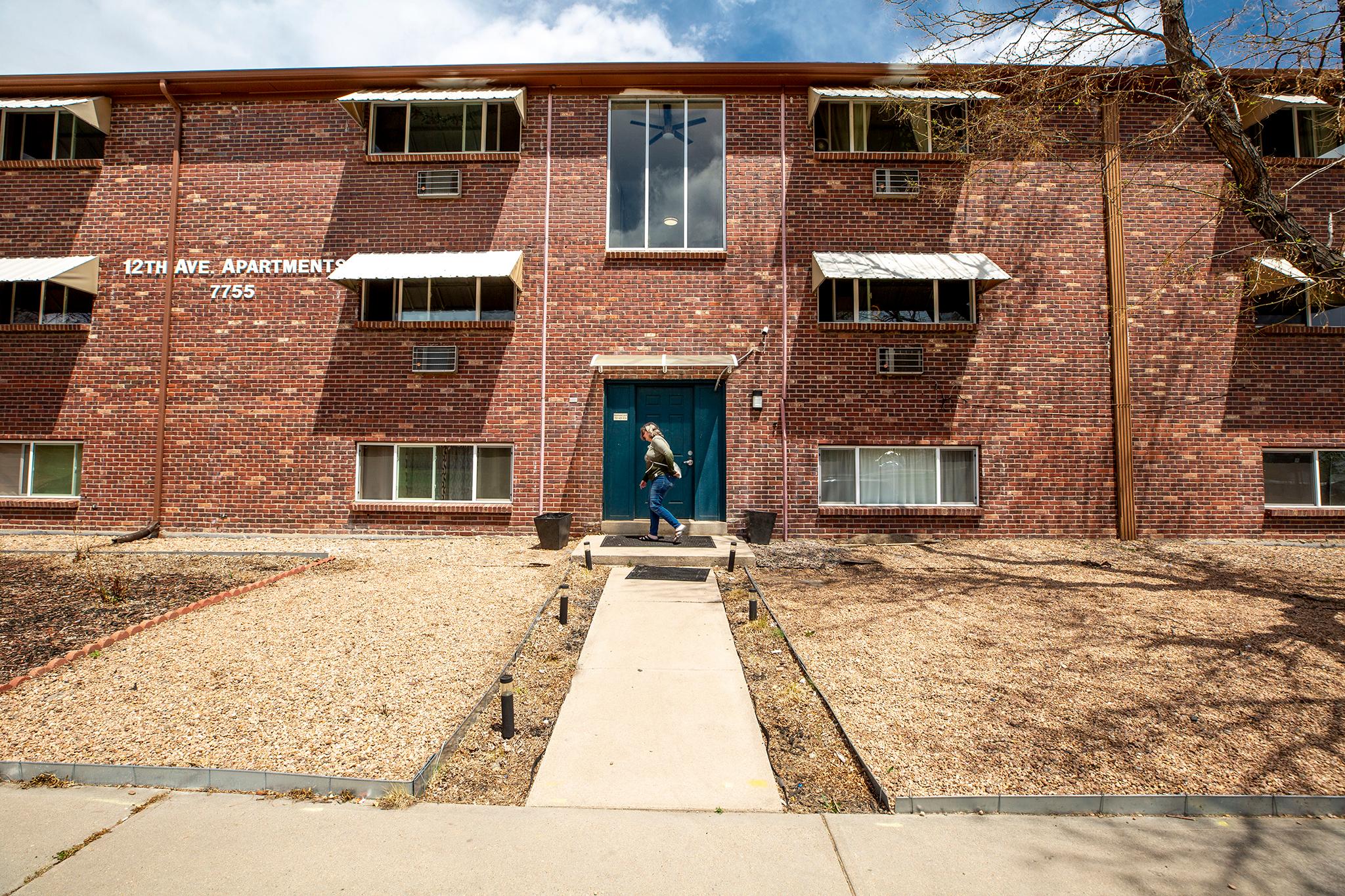
The recent federal moratorium on evictions may have slowed the acceleration of eviction cases in Colorado, but it hasn't stopped them.
Eviction filings had peaked in Colorado just before the Centers for Disease Control issued its order on Sept. 4, and the pace dropped sharply afterward, according to data compiled by Colorado Public Radio.
Elena Wilken, executive director of Housing Colorado, said that the CDC order has had a significant effect, though it leaves some gaps in its protections.
“It definitely extended protections for folks that needed it, so I do think it made a difference,” she said.
A patchwork of protections
Renters in Colorado were protected for the first months of the pandemic by a patchwork of state and federal rules. But Gov. Jared Polis allowed his state-level evictions ban to expire in June and federal protections disappeared soon afterward.
The number of eviction cases began to climb about a month after the state ban expired. That delay may be because Polis instituted a new requirement that landlords give 30 days’ notice before an eviction, instead of 10 days.
The case count peaked late in the summer as the last federal protections in the CARES Act expired. In the week of Aug. 31, landlords filed about 900 eviction cases across the state. It was the highest weekly total since February, although it remained far lower than typical pre-pandemic eviction rates.
At the same time, the COVID-19 Eviction Defense Project, a Colorado-based organization of volunteer attorneys, saw an uptick of demand for its free legal services.
What the CDC ban did
All that changed on Sept. 4, when the CDC enacted the order, catching landlords, renters and attorneys by surprise. In the next week, eviction filings dropped by nearly half.
The CDC's order largely bans landlords from evicting tenants for not paying rent, declaring that removal from housing is a public health risk. It applies until Dec. 31 for renters who make $99,000 or less, or $198,000 for a couple.
But hundreds of cases are still ongoing. Landlords in Colorado can still take eviction cases to court, allowing judges to determine whether the renter meets the standards laid out by the federal order. Landlords can also evict for causes that aren’t related to payment, such as property damage or an expired lease.
“It is inconsistent in different counties,” Wilken, with Housing Colorado, said. “So some counties we're seeing very strict interpretations of both state and federal orders and in some counties, we're not seeing that.”
Some of the spikes and drops could be due to other factors besides the CDC ban, such as the timing of rent due dates, Drew Hamrick, general counsel for the Colorado Apartment Association, said.
And he pointed out that while eviction filings have steadily grown over the months, it's never reached pre-pandemic rates. When protections expired, there were not extraordinary spikes of filings, which would have indicated landlords were just waiting to evict people.
The numbers have not justified an evictions moratorium, Hamrick argued. But housing advocates warn that people's financial situations are still deteriorating.
Renters are still paying
Despite the pandemic-sparked shutdowns and economic effects, the vast majority of renters are still paying their bills: About 95 percent had paid September rent as of Sept. 20, closely matching pre-pandemic numbers, according to data provided by the Colorado Apartment Association.
“All that’s good news,” Hamrick said. “It’s not like the CDC moratorium convinced a bunch of people who were able to pay their rent not to.”
But he warned that nonpayment could be especially damaging for small-time landlords. The state has offered up $30 million to landlords and tenants to get rent paid, but that’s no guarantee for someone who owns only a few properties, Hamrick said.
What's next for Colorado?
Javier Mabrey, an attorney for the COVID-19 Eviction Defense Project, described the CDC order as a ‘floor,’ but warned many renters could still fall through the cracks. They could lose their cases by default if they ignore a court notice.
“What we're really worried about is clients that think they're covered and so they don't do anything,” he said. “People don’t really know what their rights are nor their responsibilities.”
Mabrey wants Gov. Jared Polis to reissue a state-level order to set clear standards. Polis' office did not immediately respond. The governor recently established a task force on evictions. Meanwhile, he has kept in place the extended 30-day repayment period.
In contrast, Hamrick said that the state should return to that shorter repayment period. “That was a compromise,” that came with the expiration of the state ban, he said. “Now that the feds have made a mess of this … it’s time for that 30-day notice to go back to a 10-day notice.”
Polis’ task force will deliver recommendations in mid-October.
Are you dealing with an eviction as a landlord or renter? Email the reporters.









